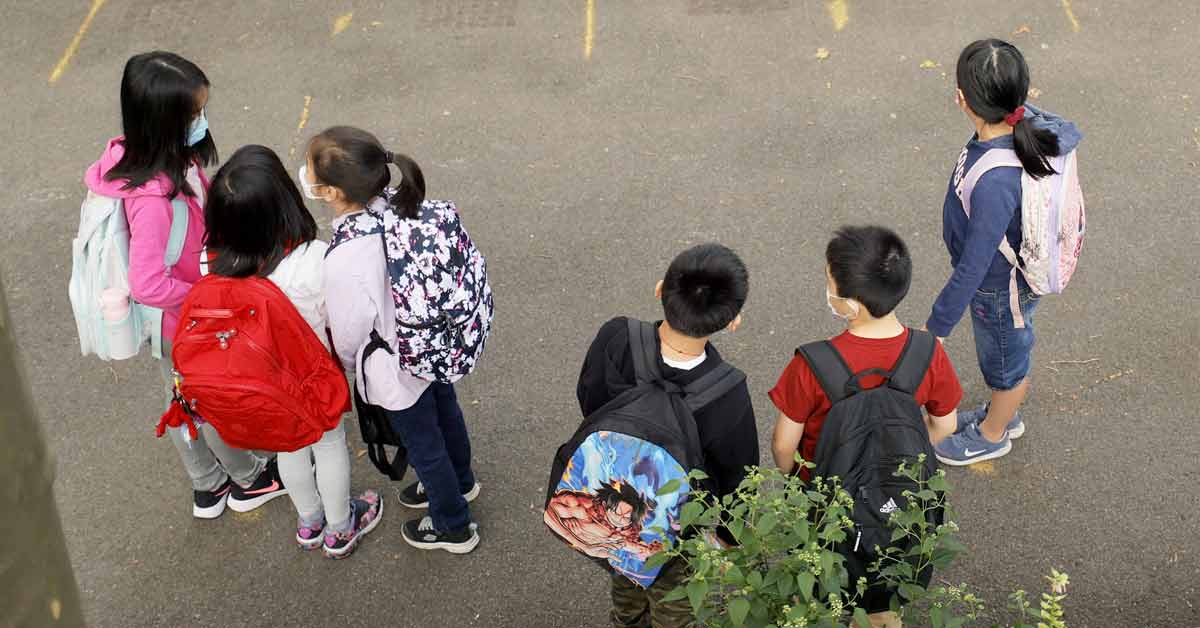The world is facing a global care crisis that we must address urgently.
When children live in unstable family environments or lose crucial family bonds at an early age, it can have irreversible consequences on the rest of their lives.
This is what we see in our work, day in and day out.
We see it when we meet children like eight-month-old Aleksander and his 10-year-old sister Natalyia, who both live in Ukraine. Tragically, they recently lost their mother who was raising them as a single parent. Local child protection authorities put them in the care of their father, Ivan. But due to the COVID-19 pandemic, Ivan lost his job and also found himself unable to adequately provide for the children.
The pandemic exacerbated the suffering of children like Alexander and Natalyia all over the world.
The pandemic and the measures taken to mitigate it have had some negative effects on every child, every family, every community. But it hit the most vulnerable the hardest.
Millions of people like Ivan, who were already struggling to make ends meet before the emergence of COVID-19, are now facing many added responsibilities and stresses, and are finding it almost impossible to care for their children effectively.
Children Suffering Disproportionately
Many children have lost their parents or other primary caregivers to the virus. According to a study published in The Lancet, “more than 1.5 million children around the world have lost at least one parent, custodial grandparent, or grandparent who lived with them due to death related to COVID-19 during the first 14 months of the pandemic”. This suggests that for every two adults that die from COVID-19, one child is left without a caregiver.
These children are often cared for by another family member, who more often than not struggles with the additional financial burden. Orphaned children who cannot be cared for by a family member, meanwhile, are put under the care of the state - something that has a lasting impact on their lives.
But it’s not only the children who lost a primary caregiver who are suffering due to the pandemic.
The pandemic has left hundreds of millions of children living in increased poverty, social exclusion and even hunger. Many families, who have not experienced a pandemic-related death, are struggling to stay afloat and finding themselves unable to meet the most basic needs of their children.
The anxiety and mental health problems caused by the pandemic is also devastating families and consequently children. Many parents and other primary caregivers are under unprecedented pressure due to financial insecurity, lack of childcare, school closures, and limited or no access to healthcare or other social services and benefits. Mental health and psychosocial support needs are not adequately recognised and services are frequently not available.
This has led to an increase in abuse and neglect of children. And many parents resorted to desperate measures, such as sending their children away. The number of children placed in alternative care within the non-profit SOS Children’s Villages International programmes, due to caregivers being unable to continue to care for them, rose by 26 percent in 2020, compared with 2019.
The global survey by the #COVIDUnder19 initiative, in which more than 26,000 children and young adults from 137 countries participated, showed that children living in alternative care have often been feeling worried, bored or sad during the pandemic.
Young adults have also suffered disproportionately during these trying times. Many of those who left the programmes shortly before the pandemic came back looking for support, stating that they had lost their jobs, found themselves unable to continue their education remotely or couldn’t pay their rent.
And this childcare crisis is still growing.
Delays and unequal access to vaccination in many regions of the world are putting more and more children and caregivers in danger - leaving many more children at risk of losing their parents and caregivers.
We cannot stand by and let this continue.
The pandemic has laid bare an ongoing crisis in care in all corners of the world. While some governments have put in place emergency support for families, in some contexts, support has been non-existent.
Civil society stepped up to help meet the most urgent needs of the families and children. However, this does not provide a long-term, sustainable solution.
What it will take to resolve this unprecedented crisis are political will and financial commitment.
Governments must lead the response to this urgent crisis to prevent further harm to individuals, families and society as a whole.
This requires a systematic, coordinated and well-sourced emergency response that focuses on the most vulnerable. This includes services for all children and their families such as education, health, mental health and psychosocial support, parenting support as well as other direct support services such as cash transfers, universal child benefit or other income support measures.
Better access to vaccines worldwide is also essential - it is the only way to contain the pandemic. Never has it been clearer to us all that we can only protect our own health by protecting the health of everyone.
And finally, governments need to invest in child protection systems that can address care needs in the long term. This gives every child a better chance to succeed in life.
The private sector, civil society, children and their families must all be part of the solution along with governments. This is the only way children like Aleksander and Nataliya can have a fair chance in life. - Al Jazeera
The views expressed in this article are the author’s own and do not necessarily reflect those of The ASEAN Post.
